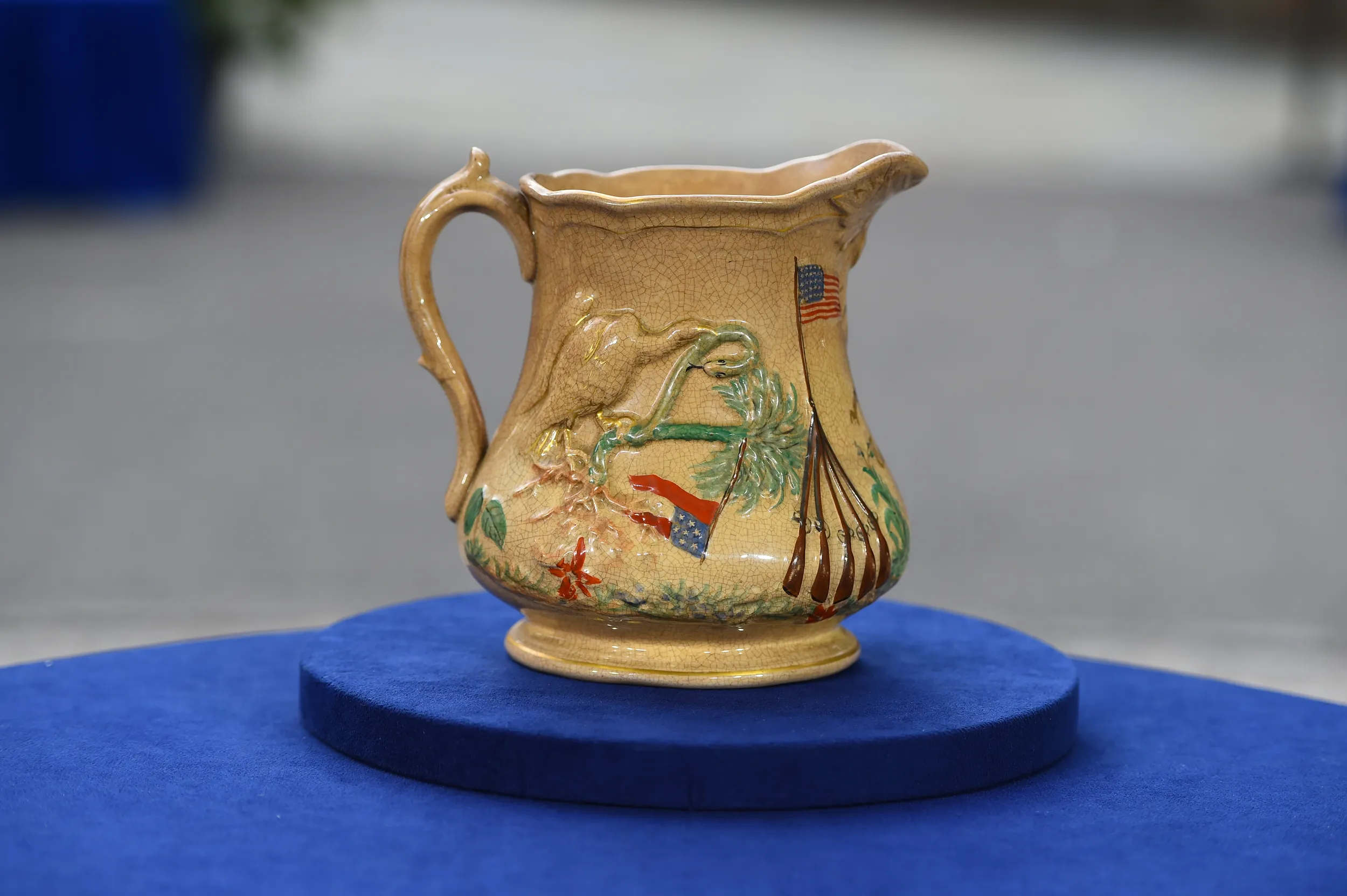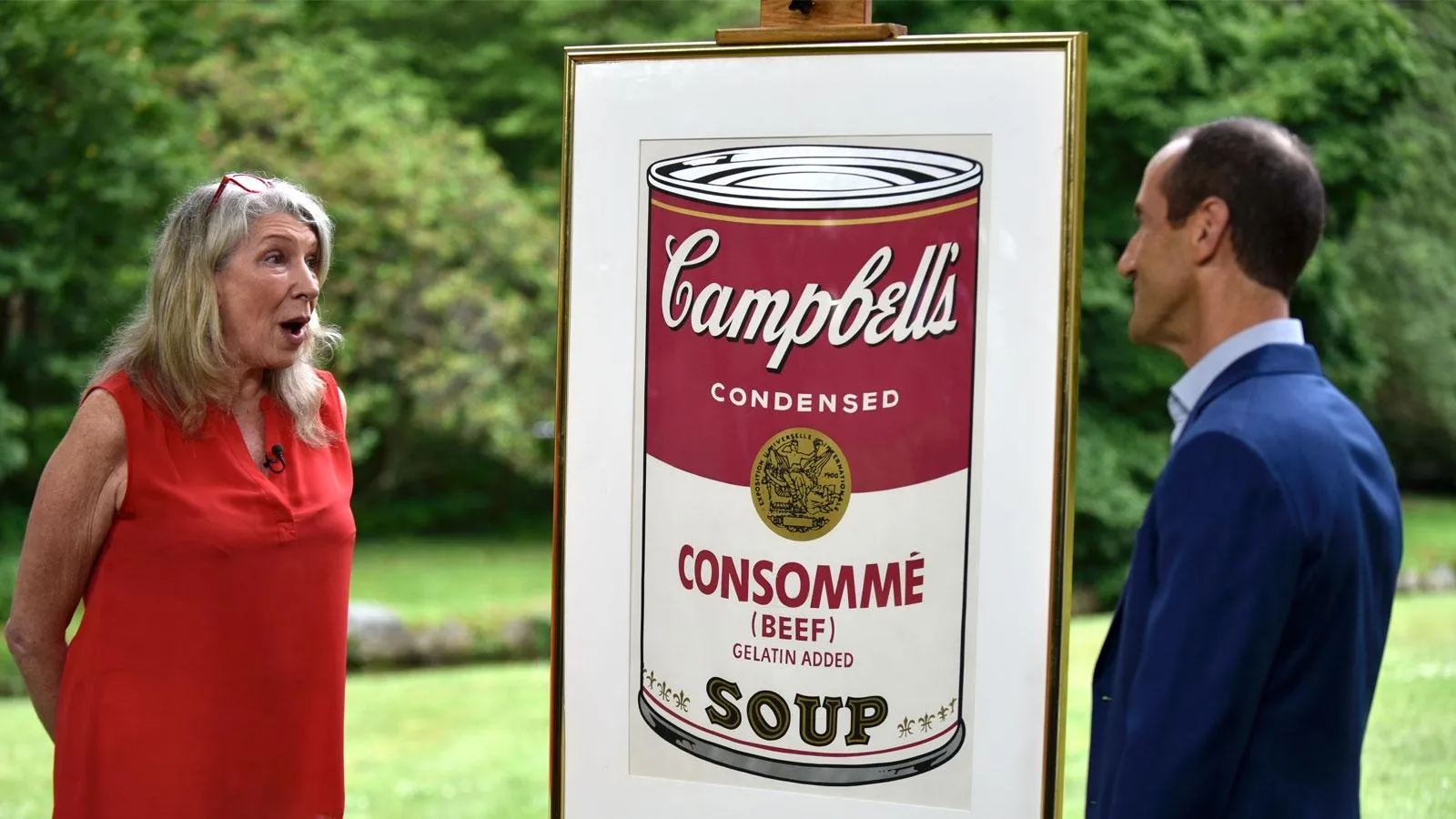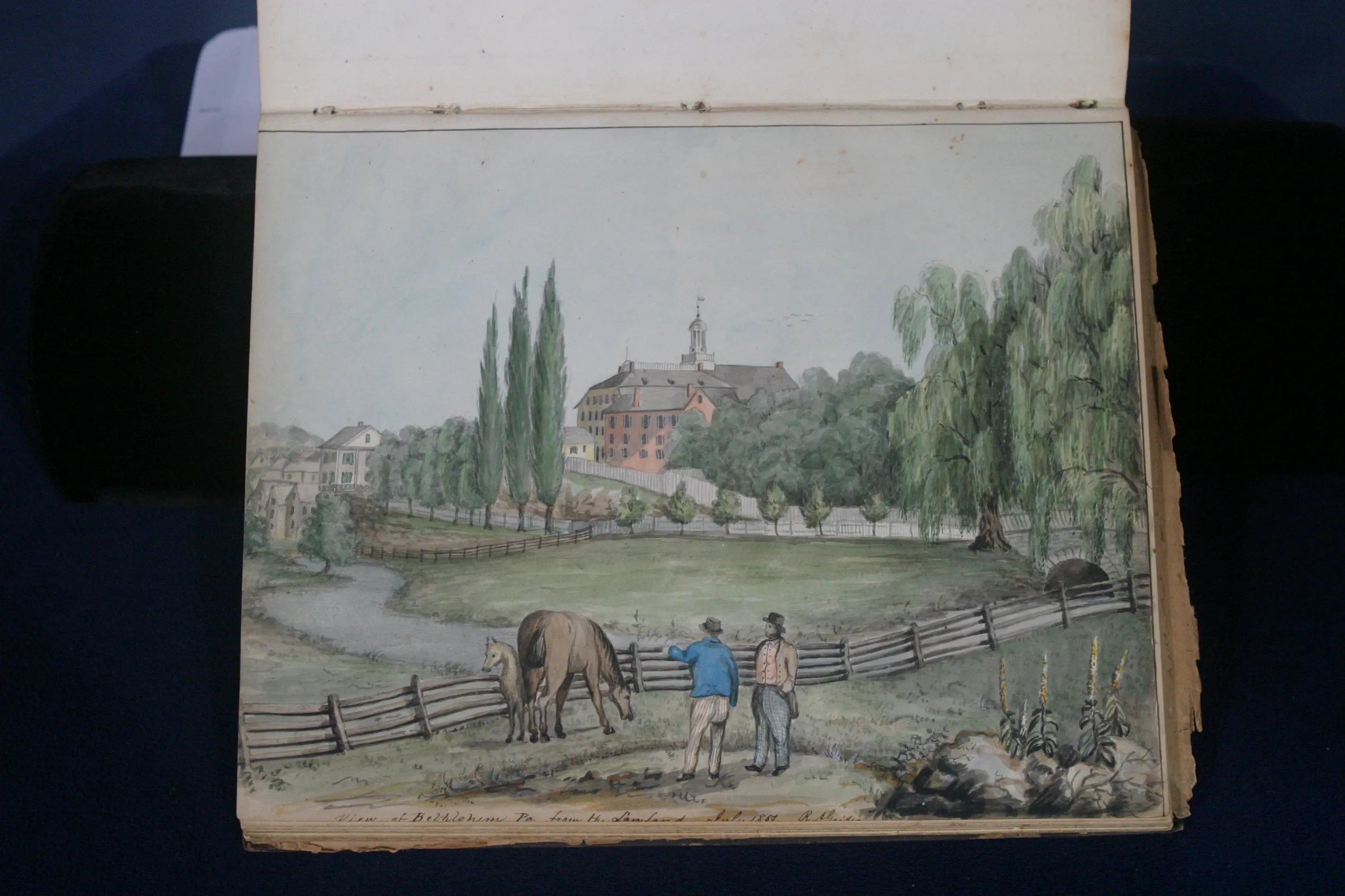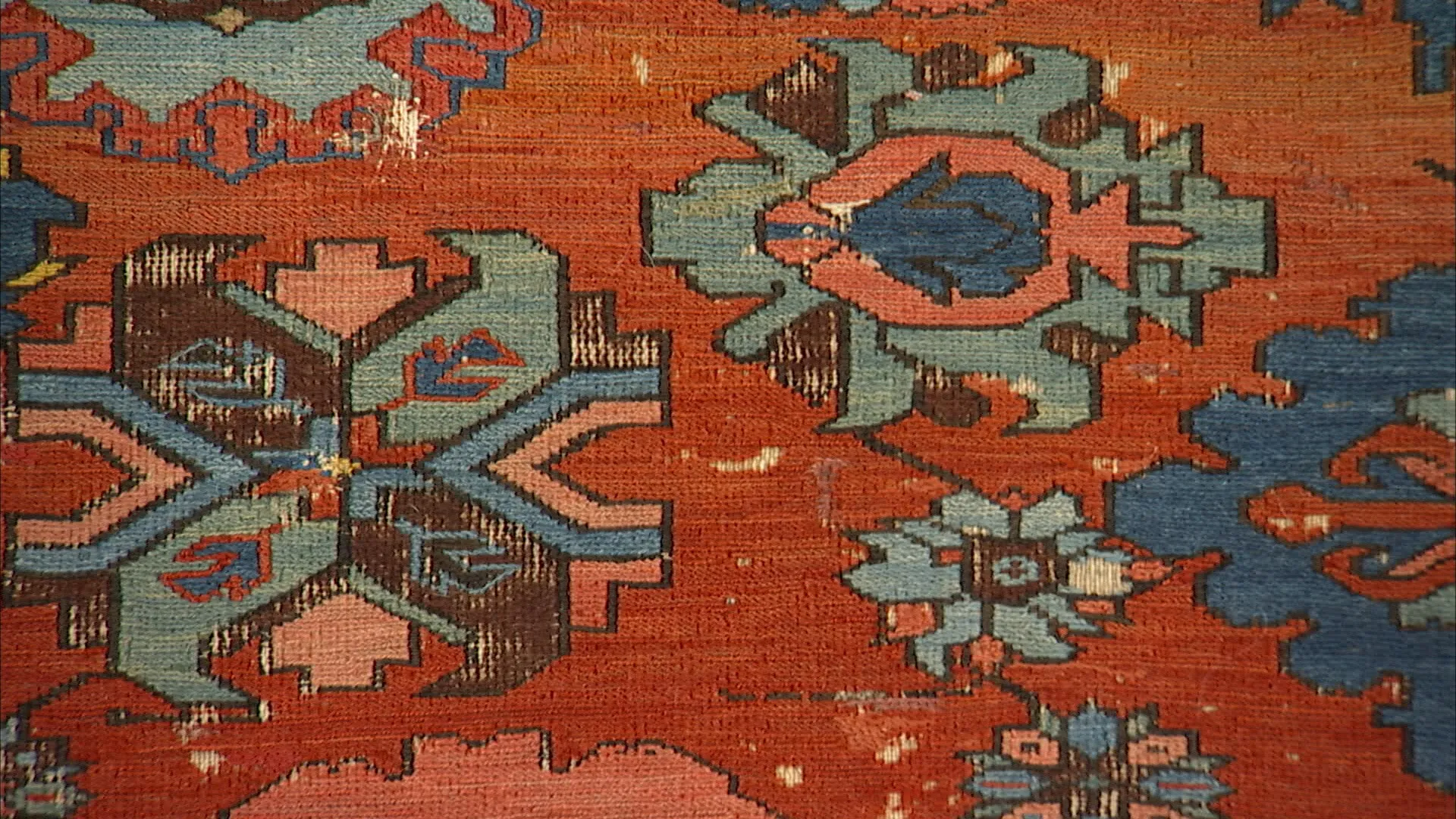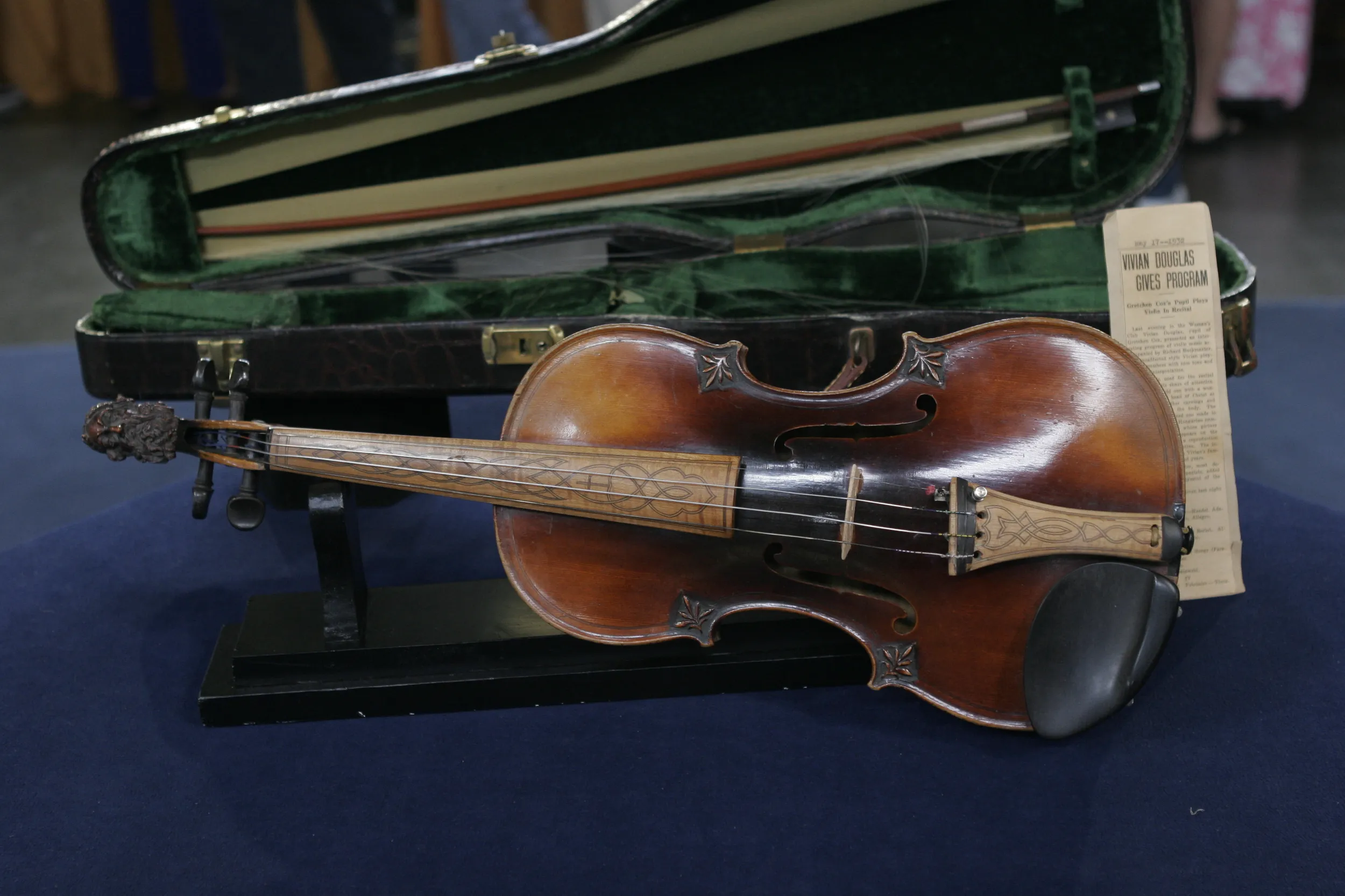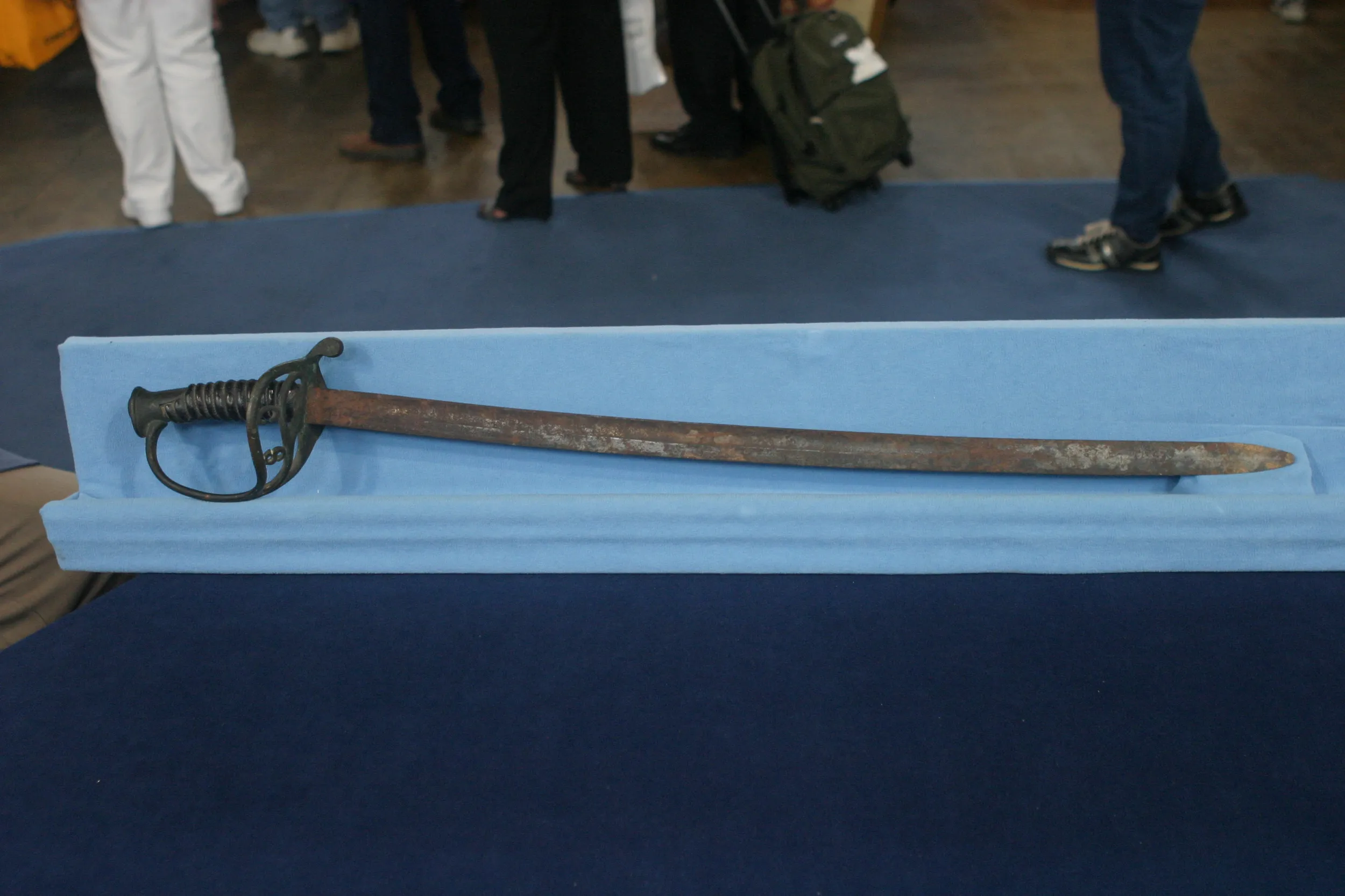GUEST: Well, it's a pitcher that's been in my family for a number of years. And I knew my, uh, great-grandfather was in the Civil War, and it belonged to him.
APPRAISER: Well, do you know who the young man is that's on the bottom?
GUEST: Oh, is he the man that took the flag down?
APPRAISER: May 24, 1861, there's a inn called the Marshall House Inn in Alexandria, Virginia. There's a Confederate flag flying up there. It can be seen from Washington, right across the river. They're, like, "We've got to get this down." A man that was friends with Lincoln, Elmer Ellsworth, went over to get that flag down. He and his men go up the stairs. They take the flag down. And as they're coming down, the proprietor of the house, James Jackson, shoots Ellsworth and kills him. The man that's with Ellsworth, Private Brownell, he shoots Jackson and then runs a bayonet through him. And that's the scene that we have here.
GUEST: Wow.
APPRAISER: Brownell would later receive the Medal of Honor for killing Jackson. We have Ellsworth fallen, with the Confederate flag partially visible on the side. It's a stoneware pitcher.
GUEST: Okay.
APPRAISER: And what's cool is, it was made in 1861.
GUEST: Really? The beginning of the war. (chuckles)
APPRAISER: Many people believe that this is actually the first commemorative pitcher that was made by an American potter. Even though these are unmarked, we know that they were made in Trenton, New Jersey, by a firm named Millington, Astbury and Poulson. They made them a couple of different ways.
GUEST: Mm-hmm.
APPRAISER: They actually made them with a white color, and this is the polychrome version. They're the most desirable.
GUEST: Hm.
APPRAISER: Because they're beautiful.
GUEST: (chuckles)
APPRAISER: You just look at it, and it, it's stunning.
GUEST: Mm-hmm.
APPRAISER: And at one time, they would have been embossed with Brownell's name, right through there. And on the other side, it's embossed-- it's nearly impossible to see-- but it's embossed with Jackson's name, and just below that, "The Traitor." As we turn it around, the imagery continues. We have a beautiful large Union eagle.
GUEST: Hm.
APPRAISER: And it has the snake, representing the Confederacy, in its talons. And along with that snake, we have the palmetto tree, representing South Carolina, which was the first state to secede, and that first national Confederate flag, like the one they took down off the Marshall House that day. It's just a great piece, and it has the stack of arms with the flag.
GUEST: Hmm.
APPRAISER: And on the front, we have a presentation in gold that was added after the fact.
GUEST: Mm-hmm.
APPRAISER: And we'll have to do a little bit more homework to figure out who those two guys are.
GUEST: Right, oh, yeah.
APPRAISER: I couldn't find anything on that. But it's a wonderful piece of history, representing a very important time at the outbreak of the Civil War.
GUEST: Right.
APPRAISER: Ellsworth is actually referred to as the first officer killed during the Civil War. This moment was a rallying cry for Union soldiers. There would later be the Ellsworth Avengers.
GUEST: (laughs)
APPRAISER: And they would make photographs of him, depicting this scene. He was the first true martyr for the Union Army.
GUEST: Wow. And being a friend of Lincoln on top of it. (laughs)
APPRAISER: Exactly. And actually, after he was killed, Lincoln has his body sent for. They bring him to the White House, and they put him lying in state in the East Room.
GUEST: Wow.
APPRAISER: Of the White House. That's how important this man was to Lincoln. Lincoln actually referred to Ellsworth as "the greatest little man I've ever met." They actually cut the flag up that he brought down off of the house and took it home as souvenirs.
GUEST: Right.
APPRAISER: And occasionally, you will actually see pieces of that flag for sale. It's a wonderful stoneware pitcher. It's got the age, it's got the crackling, and to some people, that will detract from it. I think it just gives it extra character.
GUEST: (laughing)
APPRAISER: In this condition, it's a piece that would probably retail somewhere between $1,500 and $2,000.
GUEST: Okay, wow, that's great.
APPRAISER: In mint condition, they can sell for up to $3,000.
GUEST: It's great to know.

